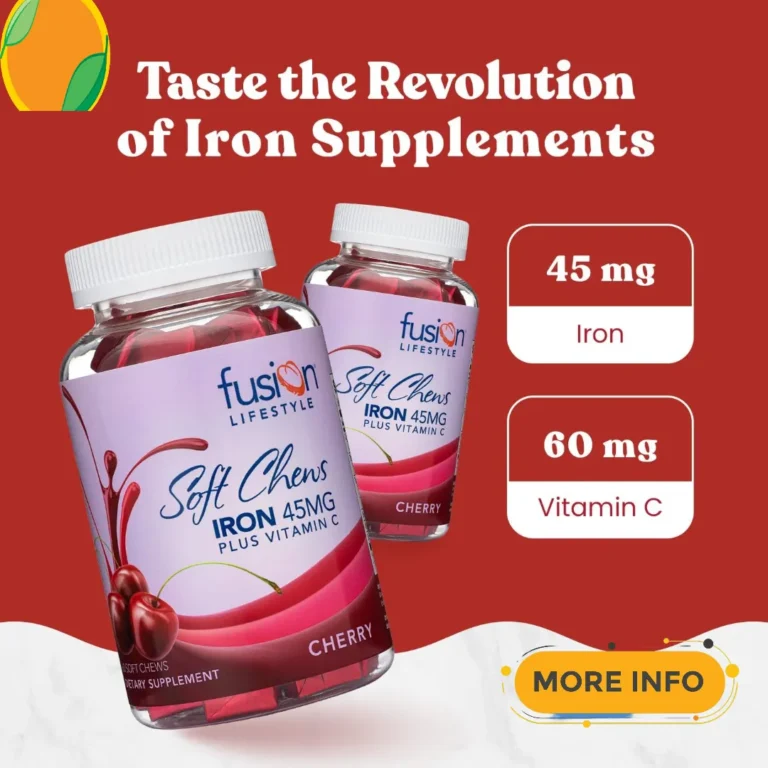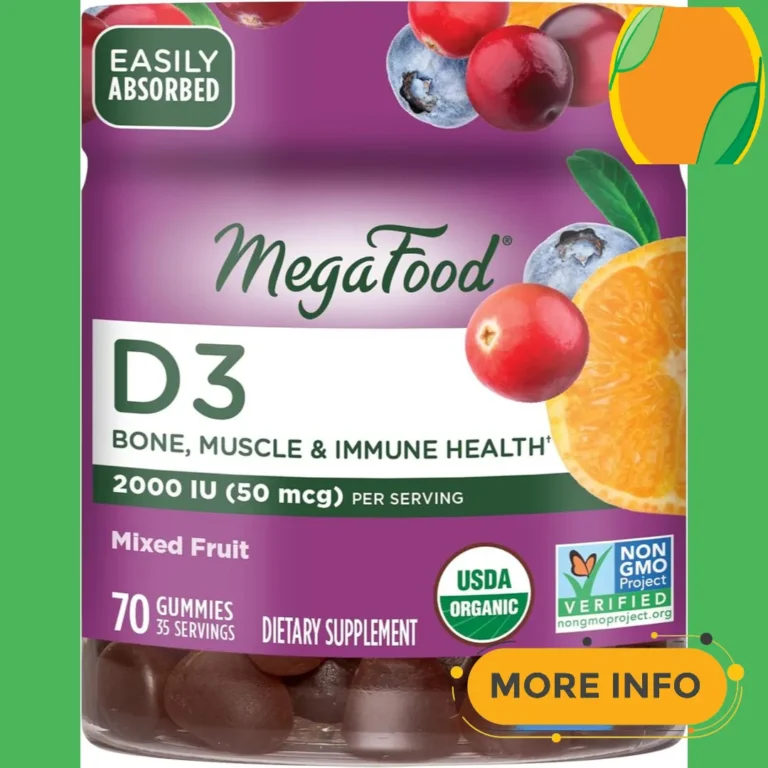Simple But Effective Tips That Help You With Vitamins And Minerals
In today’s fast-paced world, it can be challenging to maintain a balanced diet that provides all the essential vitamins and minerals our bodies need to function at their best.
However, with a few simple but effective tips, you can ensure you are getting the nutrients you need to support your overall health and well-being.
In this article, we will explore some practical strategies that can help you maximize the benefits of vitamins and minerals in your diet.
From choosing nutrient-rich foods to incorporating supplements into your routine, these tips are designed to help you optimize your nutrient intake and promote a healthy lifestyle.
Whether you are looking to boost your immune system, improve your energy levels, or support your overall health, incorporating these tips into your daily routine can make a significant difference in how you feel and function.
So, if you are ready to take control of your health and make the most of the vitamins and minerals available to you, read on for some valuable insights and advice.
Table of Contents Simple But Effective Tips That Help You With Vitamins And Minerals
Prioritize nutrient-rich foods daily
Ensuring a daily intake of nutrient-rich foods is fundamental in maintaining an optimal level of health and wellness.
By prioritizing foods that are abundant in essential vitamins and minerals, individuals can nourish their bodies with the necessary components for overall well-being.
Incorporating a variety of nutrient-dense foods such as fruits, vegetables, whole grains, lean proteins, and healthy fats can significantly contribute to meeting daily nutritional requirements.
By making conscious choices to include these foods in regular meals and snacks, individuals can enhance their nutritional intake and promote a balanced diet that supports vitality and longevity.
Indulge in a colorful diet
Embracing a diverse and vibrant array of fruits and vegetables can greatly enhance the nutritional quality of your diet.
The colors of plants often indicate the presence of various beneficial compounds, such as antioxidants, vitamins, and minerals.
Including a spectrum of colors in your meals not only makes them visually appealing but also ensures a broader range of essential nutrients.
For example, red and orange fruits and vegetables like tomatoes and carrots are rich in vitamin C and beta-carotene, while leafy greens like spinach and kale offer an abundance of vitamins A and K.
By indulging in a colorful diet, you can fortify your body with a plethora of micronutrients that are essential for overall health and well-being.
Discover your body’s needs
Understanding your body’s unique nutritional requirements is crucial for maintaining optimal health and well-being.
Factors such as age, gender, activity level, and individual health conditions can significantly influence the types and amounts of vitamins and minerals your body needs.
Consulting with a healthcare provider or a registered dietitian can help you identify any potential nutrient deficiencies and develop a personalized plan to address them effectively.
Regular health check-ups and blood tests can also provide valuable insights into your body’s current status and guide you in making informed choices to support your overall nutritional needs.
Listening to your body’s signals and adjusting your diet accordingly can lead to improved energy levels, enhanced immune function, and better overall health outcomes.
Nourish with wholesome supplements wisely
Selecting and incorporating wholesome supplements into your daily routine requires careful consideration and understanding of your body’s specific nutrient needs.
It is essential to choose high-quality supplements from reputable brands that undergo rigorous testing for purity and effectiveness.
Before introducing any new supplement, consult with a healthcare professional or a qualified nutritionist to ensure compatibility with your current diet and health conditions.
Pay attention to the recommended dosage guidelines and avoid exceeding the daily limits unless advised by a healthcare provider.
Remember that supplements are intended to complement a balanced diet, not replace essential nutrients obtained from whole foods.
By approaching supplementation thoughtfully and responsibly, you can optimize your nutritional intake and support your overall well-being effectively.
Consider professional nutritional guidance
For personalized and tailored advice on optimizing your vitamin and mineral intake, seeking professional nutritional guidance can be immensely beneficial.
A registered dietitian or nutritionist can conduct a thorough assessment of your dietary habits, lifestyle, and specific nutritional requirements to develop a customized plan that addresses your individual needs.
Professional guidance can help you navigate the vast array of supplements available on the market, ensuring you select the most suitable options based on scientific evidence and your health goals.
These experts can provide valuable insights into potential interactions between supplements and medications, as well as help you make informed decisions about optimizing your nutrient intake for enhanced well-being.
By collaborating with a qualified professional, you can enhance the effectiveness of your supplement regimen and achieve optimal health outcomes.
Opt for natural vitamin sources
When considering your dietary intake of vitamins and minerals, prioritizing natural sources can offer numerous advantages.
Whole foods like fruits, vegetables, nuts, seeds, and lean proteins not only provide essential nutrients in their natural form but also offer additional benefits such as fiber, antioxidants, and phytonutrients.
Opting for natural vitamin sources can contribute to a well-rounded and balanced diet, promoting optimal absorption and utilization of nutrients by the body.
By incorporating a variety of nutrient-dense whole foods into your meals, you can enhance your overall health and well-being while reducing the reliance on processed or fortified products.
Embracing natural sources of vitamins and minerals can be a sustainable and effective way to support your nutritional needs and elevate your dietary quality.
Maintain a balanced diet consistently
Consistency is key when aiming to maintain a balanced diet rich in essential vitamins and minerals.
By establishing regular eating patterns and making mindful choices about the foods you consume, you can support your overall health and well-being in the long term.
Strive to include a diverse range of nutrient-dense foods in your daily meals, such as colorful fruits and vegetables, whole grains, lean proteins, and healthy fats.
Planning your meals ahead of time, practicing portion control, and staying hydrated can all contribute to sustaining a balanced diet consistently.
Additionally, listening to your body’s hunger and fullness cues, and being aware of emotional eating triggers can help you make informed choices that align with your nutritional goals.
Remember, a balanced diet is not a temporary fix but a lifestyle choice that can positively impact your health over time.
Stay informed and proactive always
Remaining informed and proactive about your nutrient intake is essential to maintaining optimal health and well-being.
Keep yourself updated with the latest research, dietary guidelines, and nutritional information to make informed choices regarding your diet.
Regularly consult with healthcare professionals or registered dietitians to assess your individual nutrient needs and address any deficiencies or imbalances.
Additionally, staying proactive involves monitoring your vitamin and mineral levels through periodic blood tests and adjusting your dietary intake or supplementation as needed.
By staying informed and proactive in managing your nutritional status, you can enhance your overall health and achieve your wellness goals effectively.
Remember, knowledge is power when it comes to nourishing your body and mind for a healthier and more vibrant life.
In conclusion, ensuring adequate intake of vitamins and minerals is crucial for maintaining optimal health and well-being.
By incorporating a balanced diet rich in nutrient-dense foods and considering supplementation where necessary, individuals can effectively meet their daily requirements.
Additionally, adopting healthy lifestyle habits such as regular physical activity, adequate sleep, and stress management can further enhance the body’s ability to absorb and utilize essential nutrients.
Remember, consulting with a healthcare provider or a registered dietitian before making significant changes to your diet or starting new supplements is always wise.
Prioritizing your nutritional needs will not only support your overall health but will also empower you to live a vibrant and fulfilling life.
FAQ
What are some simple ways to ensure you are getting enough vitamins and minerals in your diet?
Some simple ways to ensure you are getting enough vitamins and minerals in your diet include eating a variety of fruits and vegetables, choosing whole grains, incorporating lean proteins, consuming dairy or plant-based alternatives, and staying hydrated.
Additionally, taking a daily multivitamin supplement can help fill any nutrient gaps.
It is important to focus on a balanced and diverse diet to ensure you are meeting your body’s nutritional needs.
How can incorporating a variety of fruits and vegetables into your meals help you meet your daily vitamin and mineral needs?
Incorporating a variety of fruits and vegetables into meals ensures a diverse range of essential vitamins and minerals are consumed, meeting daily nutrient requirements.
Different fruits and vegetables contain various vitamins and minerals, such as vitamin C in citrus fruits, vitamin A in carrots, and potassium in bananas.
This diversity helps prevent deficiencies and promotes overall health.
By including a rainbow of produce in your diet, you can obtain a wide spectrum of nutrients vital for optimal body functioning and well-being.
Are there any specific vitamins or minerals that are commonly lacking in the average person’s diet, and how can you make sure you are getting enough of them?
Some common vitamins and minerals lacking in the average person’s diet include vitamin D, magnesium, and potassium.
To ensure adequate intake, focus on a balanced diet rich in fruits, vegetables, whole grains, lean proteins, and dairy products.
Additionally, consider taking supplements if needed and consult with a healthcare provider for personalized recommendations.
Regularly monitoring nutrient levels through blood tests can also help identify deficiencies and guide dietary adjustments.
What are some easy ways to incorporate vitamin and mineral supplements into your daily routine?
One easy way to incorporate vitamin and mineral supplements into your daily routine is to set a reminder on your phone or place the supplements next to something you use every day, like your toothbrush or coffee mug.
You can also mix powdered supplements into your morning smoothie or yogurt.
Another option is to keep a weekly pill organizer on your countertop as a visual reminder to take your supplements daily.
Lastly, consider taking chewable or gummy supplements if you struggle with swallowing pills.
These simple strategies can help make taking supplements a seamless part of your daily routine.
How can proper hydration and adequate sleep contribute to the absorption and utilization of vitamins and minerals in the body?
Proper hydration ensures that nutrients are transported efficiently throughout the body, aiding in the absorption of vitamins and minerals.
Additionally, adequate sleep allows for optimal metabolic function, which is essential for the utilization of these nutrients.
Together, hydration and sleep create an environment conducive to the absorption and utilization of vitamins and minerals, ultimately supporting overall health and well-being.







